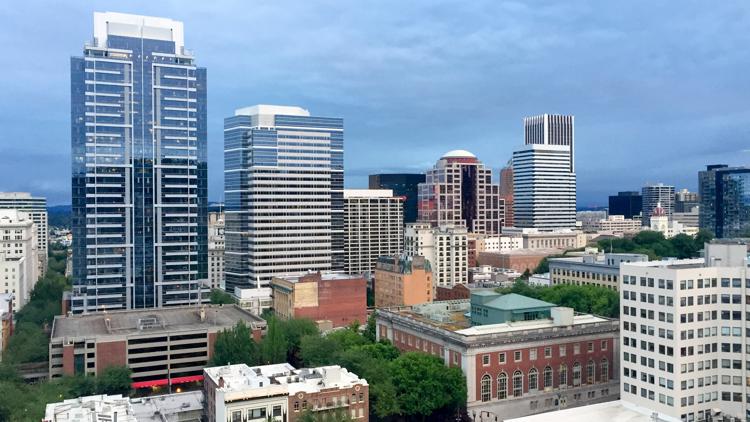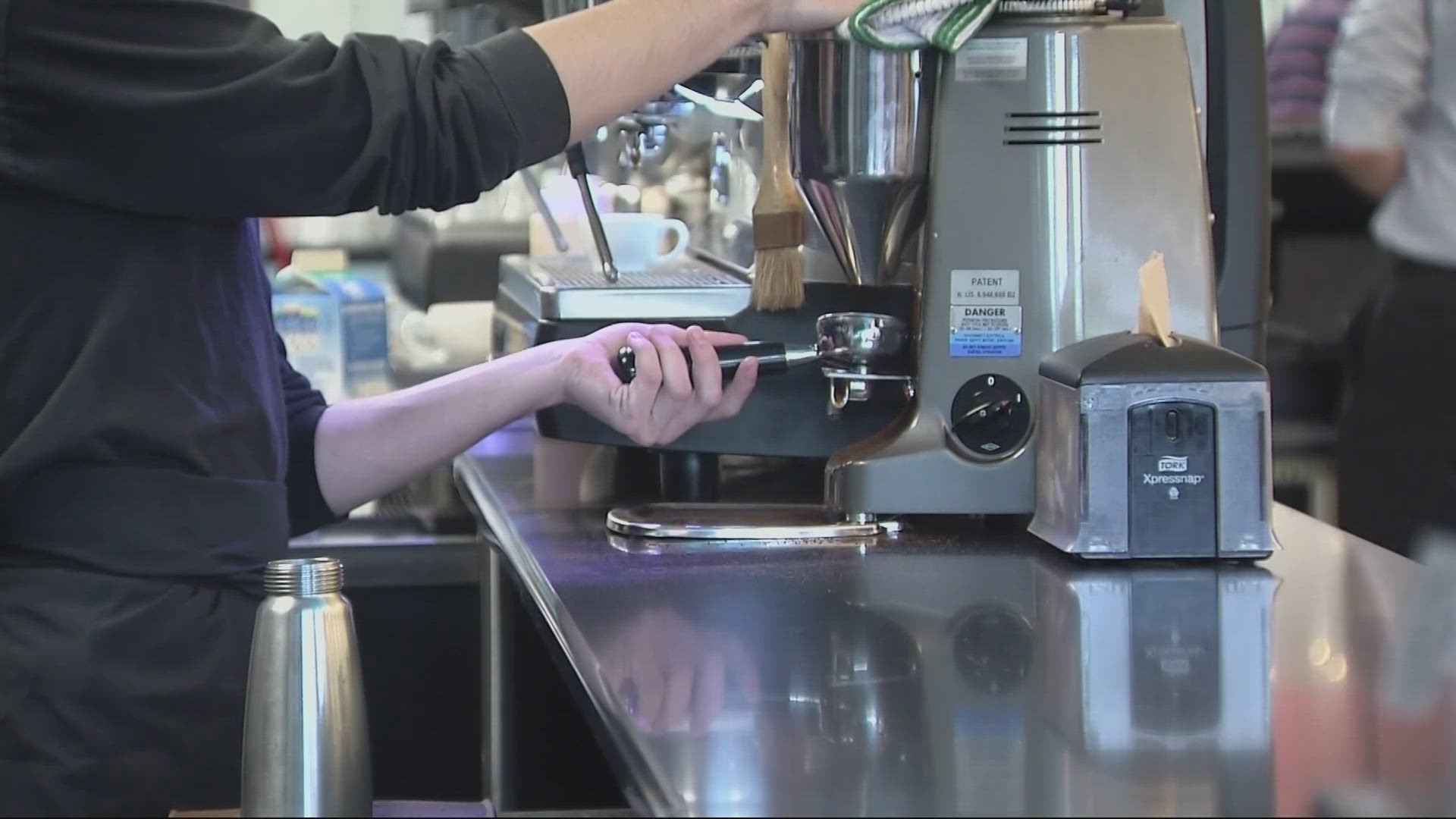PORTLAND, Ore. — This story is available courtesy of KGW news partner Portland Business Journal.
In a frequently heart-wrenching, and strongly worded, letter to elected officials, a group of downtown Portland businesses have asked Portland's elected officials to immediately address concerns they say have stripped the city of its allure and damaged their bottom lines.
Twenty-five businesses signed the letter, including the owners and operators of such renowned enterprises as Ace Hotel, Central Office, Crafty Wonderland, Courier Coffee, Mimi's Fresh Tees and Multnomah Whiskey Library.
While the missive spells out specific concerns, it's noteworthy in that the bulk of it offers specific solutions that could help the businesses overcome the wave of crime and the resultant lack of foot traffic that previously flowed into their spaces.
Their ideas include garnering more financial support from government in general, as their shrinking customer bases threaten to lead to outright financial emergencies. They also suggested leaders help form business-enhancing incubators, provide marketing assistance and offer more incentives for parking and other offerings that could bring more customers downtown.
"Revitalizing downtown businesses necessitates a multifaceted approach that addresses various aspects of their operations and environment," the owners wrote.
Already, the Portland Bureau of Transportation has agreed to one of the requests: PBOT will provide more security at city parking garages.
Here's the full text of the letter, which went to PBOT, Portland city and Multnomah county commissioners and Metro councilors.
Dear Esteemed Elected Officials,
We trust this message finds you in good health and high spirits. We, the downtown business owners of Portland, are reaching out as concerned stakeholders to bring attention to the pressing issues currently affecting our city center. The adverse conditions in our downtown area have a profound impact on local businesses. While we recognize the complexity of these challenges, we urge our city and state officials to collaborate in addressing these issues and reinvigorating downtown Portland without delay.
Downtown Portland has long served as the vibrant heart of our community, offering a diverse mix of retail establishments, dining options, cultural attractions, and small enterprises. Unfortunately, recent years have witnessed a noticeable decline in the cleanliness, safety, and overall allure of this area. This deterioration has given rise to several significant concerns:
1. Public Safety: The increased incidents of public disturbances, criminal activities, violence, and vandalism have left residents and visitors feeling unsafe in downtown Portland. This perceived lack of security significantly hampers our local businesses, discouraging potential customers and leading to reduced in-person sales.
2. Homelessness and Unsheltered Individuals: The homeless population in downtown Portland has grown considerably, necessitating more comprehensive support and housing solutions. The presence of unsheltered individuals, drug use, and vandalism negatively impacts downtown life and disrupts business operations.
3. Cleanliness and Maintenance: The cleanliness of our city center and parking garages have suffered due to litter, bodily waste, graffiti, and neglected public spaces. A clean and well-maintained environment is vital for attracting residents and tourists to downtown businesses.
4. Economic Impact on Local Businesses: The deteriorating conditions in downtown Portland are directly and detrimentally affecting local businesses. Decreased foot traffic, negative perceptions, and increased security costs are imposing financial strain on entrepreneurs and jeopardizing their business viability.
Revitalizing downtown businesses necessitates a multifaceted approach that addresses various aspects of their operations and environment. Here are several solutions that can aid in the repair and revitalization of downtown businesses:
1. Direct Financial Support for Existing Businesses: Offer grants, low-interest loans, or tax incentives to downtown businesses to help them recover from economic downturns. Directing resources towards small businesses is essential for preserving the unique shopping experience of downtown.
2. Business Incubators: Establish business incubators or co-working spaces that provide startups and small businesses with affordable office space, shared resources, and mentoring support.
3. Marketing and Promotion: Increase marketing and promotional campaigns to draw customers back to downtown areas. Organize events, festivals, and local markets to boost foot traffic and sales. Create a map of small businesses to aid visitors. Provide resources directly to businesses for store marketing.
4. Facade Improvement Programs: Implement programs that offer grants or low-interest loans to business owners for enhancing the appearance of their storefronts, thereby improving the overall aesthetic of downtown.
5. Support Local Entrepreneurs: Provide training and resources to aspiring entrepreneurs, particularly those from underserved communities, to establish and sustain businesses in downtown areas.
6. Digital Presence: Assist businesses in establishing and enhancing their online presence. Offer workshops on e-commerce, social media marketing, and website development to reach a broader customer base.
7. Public Parking Incentive: Encourage more customers to park downtown by offering free parking during specific hours and ensuring parking safety through well-maintained garages, helping to generate revenue for businesses and the city.
8. Arts and Culture: Foster local artists and cultural organizations by hosting art exhibitions, performances, and cultural events in downtown spaces.
9. Business Networking: Facilitate networking events and organizations that allow business owners to connect, share ideas, and collaborate on projects that benefit the downtown community.
10. Tourism Promotion: Promote downtown as a tourist destination, highlighting its unique shops, restaurants, and cultural attractions. Consider establishing a neighborhood association for businesses and residents.
By implementing a combination of these solutions, local governments, business associations, and community members can collaborate to repair and revitalize downtown businesses, creating vibrant and economically thriving urban centers.
Sincerely,
Downtown Businesses



